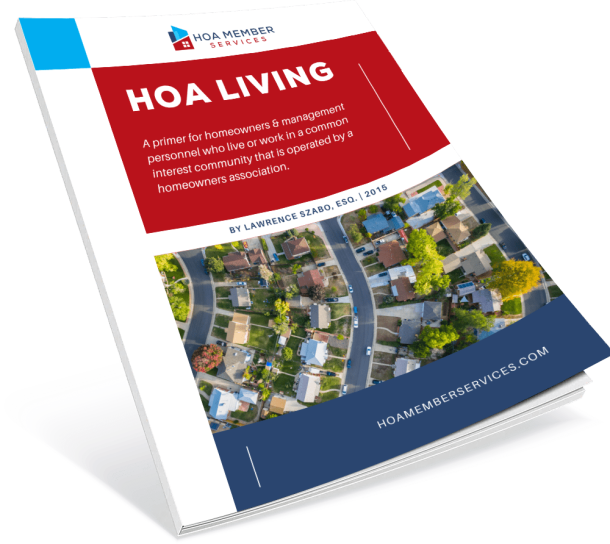Ever had a guest’s car towed from your HOA community? Frustrating, right? One minute, they’re comfortably parked, ready to enjoy a visit, and the next, their car is gone! Suddenly, what was supposed to be a relaxing get-together turns into a parking nightmare.
Well, HOA parking problems are definitely annoying. But before you start shaking your fist at the HOA board, here’s something you might not have considered — guest parking rules aren’t always about control.
Sure, they can feel restrictive, but they actually serve a purpose. These rules help prevent parking chaos, ensure residents have access to their designated spots, and keep emergency routes clear. In short, they’re meant to maintain order, not ruin your social life.
Still, that doesn’t make them any less frustrating, especially when the rules feel unclear or overly strict. That’s exactly why we’re here.
In this article, we’ll break down everything you need to know about HOA rules for guest parking — what they typically look like, why they exist, and how to avoid violations (and surprise towing fees). So, let’s begin.

Why Do HOAs Have Guest Parking Rules?
If you’ve ever had guests struggle to find parking in an HOA-managed community, you might wonder why these rules are so strict. It may seem like just another layer of regulation, but guest parking rules serve a practical purpose — keeping the community fair, organized, and safe for everyone.
Here’s why HOAs put these policies in place:
The Purpose of Parking Rules
- Fairness and Order: HOAs aim to create a structured and equitable system where no homeowner or guest unfairly dominates shared parking areas. Without guidelines, certain residents might take advantage, leading to disputes and frustration.
- Managing Limited Parking Spaces: In high-density communities, parking is often scarce. Guest spots are meant for short-term visitors, not long-term storage for extra vehicles. Without regulations, parking would quickly become unmanageable, making it difficult for actual guests to find a place to park.
- Preventing Abandoned Vehicles, Illegal Rentals, and Overcrowding: Some homeowners might try to use guest parking as permanent overflow for their own cars or even rent out spots, creating unintended issues like overcrowding and disputes. Strict parking rules prevent these problems by ensuring that guest spaces serve their intended purpose.
- Keeping Streets and Driveways Clear for Emergency Vehicles: It’s not just about convenience — cluttered or improperly used parking areas can create serious safety hazards. Fire trucks, ambulances, and police need clear access to homes in case of emergencies. When cars are parked haphazardly or guest spots are misused, it can delay response times and put lives at risk.
Who Decides These Rules?
HOA parking rules don’t just appear out of nowhere; they are set and enforced through specific processes:
- The HOA Board of Directors: This group, typically made up of elected homeowners, is responsible for setting community policies, including parking regulations. They establish rules based on the community’s needs and enforce them through official governing documents.
- Governing Documents (CC&Rs, Bylaws, and Rules & Regulations): Homeowners associations operate under a set of legally binding documents, including Covenants, Conditions & Restrictions (CC&Rs), bylaws, and additional regulations. These documents outline parking policies, ensuring they are legally enforceable.
- Property Management Companies: Many HOAs hire property management firms to help enforce parking rules. These companies monitor compliance, issue warnings, and, in some cases, coordinate towing services for violations.
- Can Homeowners Have a Say? The answer depends on how the HOA is structured. In some communities, residents can attend board meetings, propose rule changes, or even vote on amendments to existing policies. If homeowners feel that guest parking rules are too restrictive, getting involved in HOA governance is the best way to advocate for change.
Common HOA Guest Parking Rules
1. Time Limits for Guest Parking
One of the most common HOA guest parking rules involves time limits. Many communities enforce a 24-hour, 48-hour, or 72-hour rule, meaning a guest vehicle can only be parked in designated guest areas for a set period before it must be moved.
But here’s where it gets tricky: Does simply moving the car to another guest spot restart the clock? Not always.
Many HOAs track vehicles using license plate numbers or other methods to ensure compliance. If an HOA has a strict policy, relocating a guest’s car within the community may not reset the timer, and the guest could still face consequences.
However, special event exemptions may be available, allowing guests to stay longer under certain conditions. Homeowners can usually request an extension for things like family gatherings or out-of-town visitors, but it’s important to do so ahead of time to avoid fines or potential towing.
2. Guest Registration Requirements
To keep track of visitors, some HOAs require guests to register their vehicles. This can be done in various ways, such as:
- Online registration portals that allow homeowners to submit visitor information.
- Temporary parking permits that guests must display in their vehicles.
- Guest logs or sign-in sheets at security stations or management offices.
These registration requirements help the HOA monitor parking availability and prevent unauthorized vehicles from taking up limited spaces.
But what happens if a guest doesn’t register their vehicle? Depending on the HOA’s rules, they could receive a fine, a warning, or risk having their car towed if the community is particularly strict.

3. Assigned vs. Open Guest Parking Spaces
Not all guest parking areas are the same. Some communities offer designated guest parking spots, while others use a first-come, first-served system.
- Designated guest spots mean that visitors must park in specific areas marked for guests. Some HOAs issue temporary passes to ensure compliance.
- Open guest parking follows a more flexible approach, allowing guests to park wherever a guest spot is available.
In some HOAs, guest spots are extremely limited, leading to frustration when visitors struggle to find parking. Homeowners might wonder if guests can park in unassigned homeowner spaces, but this is not always allowed.
Some HOAs explicitly forbid visitors from using unoccupied resident spots, even if the homeowner gives permission. Always check with your HOA before letting a guest park in any space that isn’t clearly designated for visitors.
4. Overnight and Long-Term Guest Parking Rules
Many HOAs have strict rules about overnight parking. It’s not uncommon to see signs stating “No Overnight Parking” in guest areas, and some communities require special approval for visitors staying past a certain time.
- Why the restriction? HOAs often worry about non-residents abusing guest parking, leading to a shortage of available spots. They also want to prevent the long-term storage of vehicles that aren’t registered to the community.
- How to get approval for extended stays: If a guest needs to park overnight or for multiple days, homeowners may need to request a temporary permit from the HOA. Some HOAs allow extended stays but require documentation, such as proof of a guest’s visit.
Loopholes (and the risks): Some homeowners try to work around overnight parking bans by periodically moving a guest’s car or switching spots. However, if the HOA tracks guest vehicles, this can result in warnings, fines, or even revocation of parking privileges.
5. Street Parking Restrictions
One of the biggest questions homeowners have is whether an HOA can enforce parking rules on public streets. The answer? It depends.
- Public roads: In most cases, an HOA cannot regulate parking on public streets, but there are exceptions. Some communities have agreements with local governments that give them the ability to enforce rules, issue citations, or request towing.
- Private roads: If streets inside the HOA are privately owned, the HOA has full control over parking enforcement. They can impose restrictions, limit overnight street parking, and even tow vehicles that violate the rules.
There have been cases where HOAs successfully fined or towed vehicles from public streets, particularly in areas where local authorities have given them enforcement power. Homeowners should check their HOA’s governing documents and local laws to understand what’s allowed.
6. Special Event and Holiday Parking Rules
Hosting a large gathering? HOAs often have rules in place to manage parking during holidays, parties, and special events.
- Temporary passes: Some HOAs issue temporary guest passes for special occasions, allowing visitors to park without facing penalties.
- Advance notice: Homeowners may be required to inform the HOA in advance if they expect a high number of guests.
- Neighbor complaints: Too many parked cars can cause friction between residents. If guests block driveways, take up too much space, or create congestion, neighbors may file complaints.
To avoid issues, always check with your HOA about event-related parking policies. If possible, arrange carpooling or off-site parking to reduce congestion.
How HOAs Enforce Guest Parking Rules
Homeowners’ associations take parking enforcement seriously, and they have multiple ways to make sure residents and their guests comply. Here’s what you can expect if you or your guest violates HOA parking rules:
1. Warning Notices & First-Time Violations
Most HOAs start with a written warning before taking harsher action. This warning is usually placed somewhere noticeable, like on your guest’s windshield, taped to your front door, or even sent via email. The goal is to remind homeowners (and their visitors) of the rules without immediately issuing a penalty.
Some HOAs may be more lenient, offering a grace period for first-time violations, while others take a stricter approach and count each warning as an official strike against the homeowner. If the issue isn’t addressed, further violations can escalate into fines or other consequences.
2. Parking Fines and Repeat Offenses
Ignoring a warning notice can quickly lead to fines, and these aren’t just small inconveniences. Depending on the HOA’s rules, parking fines can range anywhere from $25 to $200 per violation. The more frequently violations occur, the higher the penalties may climb.
A key question many homeowners ask is: Can an HOA fine the guest directly? The answer is usually no. Since guests don’t have a contractual relationship with the HOA, the responsibility for paying the fine almost always falls on the homeowner. That means if your visitor parks in a restricted area or overstays their permitted time, you will be the one footing the bill.
And what happens if you ignore the fines? HOAs typically have systems in place to ensure payment, including additional penalties, interest charges, and in extreme cases, legal action. Unpaid fines can even lead to restrictions on your community privileges, making it harder for you to enjoy shared amenities.
3. Towing Policies: What You Need to Know
If fines aren’t enough to deter parking violations, towing is the next step. Many HOAs have towing policies that allow them to remove improperly parked vehicles under specific conditions. However, the exact rules around towing depend on local and state laws.
For an HOA to legally tow a vehicle, they generally need to provide clear signage warning of the consequences. Signs must be placed at the entrance of the community or near the affected parking area. In some states, HOAs must also give prior notice, such as a warning sticker on the car, before towing.
Once a vehicle is towed, recovering it can be costly. Owners must pay a towing fee, daily storage fees, and sometimes an administrative fee before the car is released. If you believe the tow was unjustified, you can dispute it, but the process is often complicated and varies by jurisdiction.
Some states require the HOA to reimburse the owner if the tow was improper, while others leave the responsibility on the vehicle owner to prove the tow was illegal.

4. Enforcement Through Homeowner Violations
Some HOAs don’t stop at fines and towing; they also enforce parking rules by holding homeowners directly accountable for their guests’ actions. Even if you weren’t the one who parked incorrectly, you could still face consequences.
One common enforcement tactic is amenity restrictions. If your guest repeatedly breaks parking rules, the HOA may suspend your access to shared facilities like the pool, clubhouse, or gym.
In extreme cases, unpaid fines and ongoing violations could even lead to a lien being placed on your home. This means that if you continue to ignore HOA penalties, you may face legal action or even difficulty selling your property in the future.
When HOA Parking Rules Feel Unfair – What Can You Do?
When HOA parking rules feel unfair, the good news is you don’t have to just accept the situation. Whether you’ve received a parking violation for something that feels unjust or you’re struggling with limited parking spaces for your guests, there are steps you can take to resolve the issue and make your voice heard.
Here’s what you can do:
1. Challenging an HOA Parking Violation
If you’ve received a parking ticket or fine that doesn’t seem justified, it’s not the end of the road. There are clear steps you can take to appeal it:
- Start by writing a formal dispute letter to the HOA, making sure to explain why you think the violation is incorrect. Be respectful, but firm, and back up your claims with facts.
- Gather evidence that can support your case. This could include photos showing where you parked, timestamps that indicate when your guest arrived or left, or even visitor logs that show you followed the proper process. The more evidence you can provide, the stronger your case will be.
2. Requesting an Exception for Special Circumstances
Sometimes, life throws curveballs, and the parking rules just don’t fit the situation. Whether you have a guest staying for an extended period or need extra parking for medical reasons, requesting an exception can help.
- To apply for a guest parking exemption, you’ll likely need to write a letter to the HOA board, explaining your specific situation. Be clear about why the rules should be adjusted for you, and what the impact would be if they weren’t.
- Know when HOAs typically grant exceptions – they may be more willing to adjust the rules during special circumstances, like when you’re hosting out-of-town family members or dealing with a temporary disability.
- When submitting your request, negotiate successfully by highlighting the temporary nature of the situation and suggesting solutions that minimize the impact on the community, like a temporary parking pass or guest permit.
3. Proposing a Rule Change
If the parking issues you’re experiencing are part of a larger, community-wide concern, it may be time to propose a rule change. Instead of feeling stuck with a policy that doesn’t work, get proactive and start working toward better parking rules.
- To amend the HOA’s parking regulations, you’ll need to understand the process for submitting a formal proposal. This usually involves writing a letter to the HOA board outlining your suggestions and why the current rules are problematic.
- A key part of this process is getting neighbors on board. The more support you have from fellow homeowners, the better chance your proposal has of being taken seriously. If several people in your community share the same concern, your collective voice will be much more powerful.
- Numbers matter here: if you can get a petition signed or show that many residents feel the same way, the HOA will have a harder time ignoring your proposal.

Parking Disputes: What to Do When Things Get Ugly
If you’re stuck in a parking dispute, here’s how to fight back, protect your guests, and know when it’s time to bring in legal help:
Your Guest’s Car Got Towed – Now What?
Few things ruin a visit faster than stepping outside and realizing your guest’s car is gone. Before assuming the worst, check if it was towed and figure out how to get it back.
- Locating the Vehicle: Most HOAs have a contract with a specific towing company. The first step is to check nearby signage for towing information or call the HOA directly. If they’re unhelpful, call local tow yards to ask if the car was brought in.
- Fees, Documentation, and Retrieval: Towing fees can be steep, sometimes reaching hundreds of dollars in just a few hours. Your guest will likely need a valid ID, proof of car ownership (registration or insurance), and payment to retrieve their vehicle. If the car was towed late at night, some yards might not release it until morning, adding overnight storage fees.
- Can the HOA Be Forced to Reimburse the Cost?: In some cases, yes. If the HOA failed to follow its own rules, such as not providing proper notice, using unclear signage, or towing despite the car being parked legally, you may be able to challenge the charge. Start by gathering evidence (photos of signage, HOA rule documents, and witness statements) and filing a formal complaint with the HOA board. If they refuse to cooperate, small claims court may be an option.
When a Neighbor Reports Your Guests Unfairly
Every neighborhood has that one neighbor — the self-appointed enforcer who reports every minor infraction, even if it’s not a real violation. If your guests keep getting ticketed or towed because of unfair complaints, you’re not powerless.
- Dealing with False Reports: If your guest followed the rules but was still targeted, request proof from the HOA. Some HOAs rely on resident complaints rather than verifying violations themselves. If that’s the case, ask for specific details, such as timestamps or security footage, to confirm whether the report was accurate.
- The Problem with Parking Patrol Neighbors: Some people take HOA rules way too seriously and love reporting others, even when there’s no actual violation. If you suspect a specific neighbor is unfairly targeting you or your guests, document everything. Take photos, keep track of incidents, and talk to other neighbors who may have had similar experiences.
- Filing a Counter-Complaint or Mediation Request: If the complaints continue, you can take action. Many HOAs have a dispute resolution process that allows you to challenge a violation. You may also be able to file a counter-complaint against the neighbor for harassment or abuse of HOA policies. If things escalate, consider requesting mediation through the HOA board or a local mediation service to formally address the issue.
Legal Options: When to Lawyer Up
If the HOA refuses to back down and continues to enforce unfair parking rules, you might be wondering if legal action is the next step. The answer depends on the severity of the issue and whether the HOA is acting outside its authority.
- Can You Sue an HOA for Unfair Parking Enforcement? Yes, but it’s important to have a strong case. If the HOA is enforcing rules inconsistently, failing to follow its own procedures, or violating state laws on HOA governance, you may have grounds for legal action.
- Small Claims Court vs. Hiring an HOA Attorney: If you’re only seeking reimbursement for towing fees or fines, small claims court is often the best route. It’s cheaper, faster, and doesn’t require hiring a lawyer. However, if the HOA has a pattern of unfair enforcement, an HOA attorney can help you challenge their authority and push for broader rule changes.
There have been cases where homeowners successfully fought back against unjust parking enforcement. If you believe your HOA is violating the law, legal action may be a worthwhile option.

How to Make HOA Guest Parking Rules Work for Everyone
While HOA guest parking rules can feel restrictive, a well-managed system benefits both homeowners and their visitors. Here’s how HOAs and residents can find common ground to make parking policies fair, clear, and easy to follow.
The Key to Good Parking Rules: Clarity and Consistency
One of the biggest issues with HOA parking rules is that they are often unclear or inconsistently enforced. Here’s how HOAs can fix that:
- Spell it out in plain language. Avoid legal jargon; homeowners should easily understand the rules.
- Make rules accessible. Include guest parking policies in welcome packets, HOA websites, and community emails.
- Be consistent with enforcement. If rules apply to everyone, they should be enforced equally — no favoritism.
How Homeowners Can Navigate Guest Parking Smoothly
Even with strict rules, homeowners can avoid unnecessary parking issues by being proactive:
- Know the rules before inviting guests. A quick check can prevent an unexpected fine or tow.
- Get necessary permits or registrations in advance. If your HOA requires guest passes, handle it ahead of time.
- Communicate with guests. Give them clear instructions on where they can and can’t park.
- Speak up if the rules seem unfair. If parking policies cause problems, homeowners should bring it up at HOA meetings.
What HOAs Can Do to Improve Guest Parking Policies
HOA boards should regularly review and update guest parking policies to ensure they remain fair and practical:
- Survey residents to gauge parking concerns. If many homeowners struggle with guest parking, changes may be needed.
- Create flexible solutions for special cases. Consider temporary permits for extended guests or family caregivers.
- Improve signage and communication. Clear signs, maps, and digital resources can help guests avoid violations.
- Balance enforcement with reasonableness. HOAs should avoid unnecessary towing or excessive fines unless truly needed.
Finding a Middle Ground: A Parking Policy That Works
At the end of the day, guest parking should serve its purpose without causing unnecessary stress. The best parking rules:
- Prevent abuse (like guests taking up spaces for weeks).
- Ensure fairness so that every homeowner has access to guest spots when needed.
- Remain flexible enough to accommodate special situations.
Homeowners and HOAs don’t have to be at odds over parking. When both sides work together, parking rules can become a helpful guideline rather than a constant source of conflict.

Key Takeaways
Guest parking in an HOA community doesn’t have to be a headache — if you know the rules! Stay ahead of any issues by keeping these key points in mind:
- Know the rules before inviting guests to avoid fines or towing surprises.
- Register visitors and request passes when needed to keep things hassle-free.
- Challenge unfair rules the right way — follow proper procedures to push for change.
- Communicate with your HOA before small concerns turn into big problems.
Confused about a parking rule or facing an HOA dispute? Become our member today and get personalized legal advice from an expert HOA attorney.

